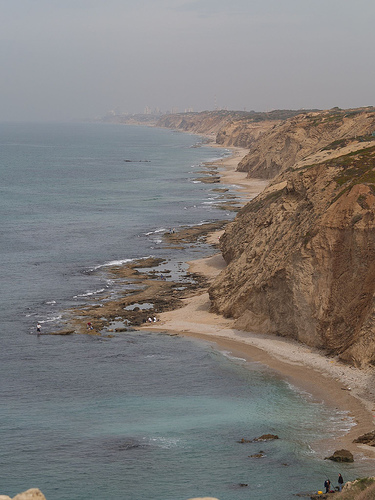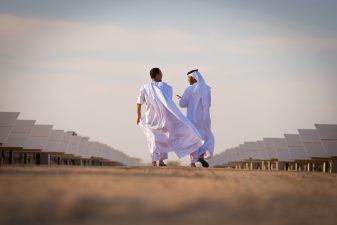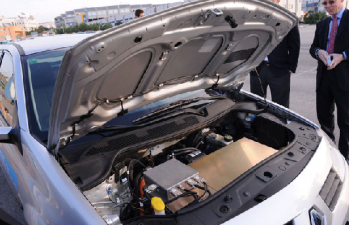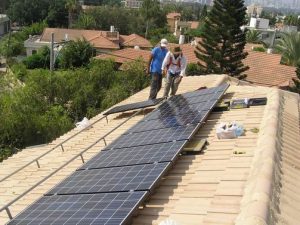Israel’s cabinet has approved recommendations for preventing the further erosion of coastline cliffs.
The Israel National Roads Company is preparing to publish tenders for the supply, installation and maintenance of wind turbines to generate electricity for highway lighting.
According to the Globes business daily, the CFO of Israel National Roads Co., Shay Yiftach, explained at a conference this week that small wind turbines could be installed on lighting poles on the coastal highway running along Israel’s Mediterranean coastline to exploit the sea winds.
The CEO of this government corporation, Alex Viznitzer, added: “We are initiating steps to integrate systems for producing renewable energy into the infrastructure of highways. Thousands of acres of available land at interchanges can be exploited for placing photovoltaic solar arrays. Many thousands of street lights can use wind turbines.”
The tenders are expected to be published after a survey is conducted to check the economic feasibility of potential sites, Globes reported.
Government seeks to shore up the shoreline
Meanwhile, the Israeli cabinet took initial action this week to prevent further erosion of shoreline cliffs along the Mediterranean, approving the principles of a policy paper prepared by the Environmental Policy Center at the Jerusalem Institute for Israel Studies and the Ministry of Environmental Protection.
The policy paper calls for an outlay of NIS 470 million to reinforce the cliffs over the next 20 years, the Haaretz daily reported. The cliffs have retreated a few dozen centimeters each year due to natural and human-induced erosion. The policy paper recommends physically reinforcing about 13 kilometers of the 45-kilometer stretch of cliffs, especially near Ashkelon and Herzliya.
Some of the alternatives for reinforcing the cliffs are already in place at the site of the Apollonia (Arsuf) Crusader fortress, about 15 kilometers north of Tel Aviv. However, environmentalists have complained that the work done at Apollonian ruined the beach at the foot of the cliffs.
The cabinet meeting this week included a discussion of the government’s responsibility for protecting endangered natural assets such as the shoreline cliffs. The attorney general argued that the state must take reasonable action to minimize such damage, but is not necessarily obliged to pay the costs.
Read more about wind power in Israel:
Can Israel’s Wind Power Sector Compete with Solar?
Blower Fans in the Cow Shed Test Vertical Wind Turbines of Coriolis
:: Globes
:: Haaretz





One of the most impressive things about Israel has always been the way that it has found creative solutions to difficult problems when it comes to agriculture, but it is really nice to see people turning their attention now to using technology to help improve and maintain Israel’s natural environment by finding new ways of reducing energy use and taking steps to help repair coastal erosion. I am a bit puzzled by the attorney general’s statement that the state is obliged to take action but not to fund the repairs to Israel’s coastline – perhaps there is room here for a partnership between the government and local businesses or non-profits. As for powering streetlights by using small wind turbines, I think this is a magnificent idea and if it proves to be a successful model other countries and the Middle East could adopt it as a way to help overall power consumption.